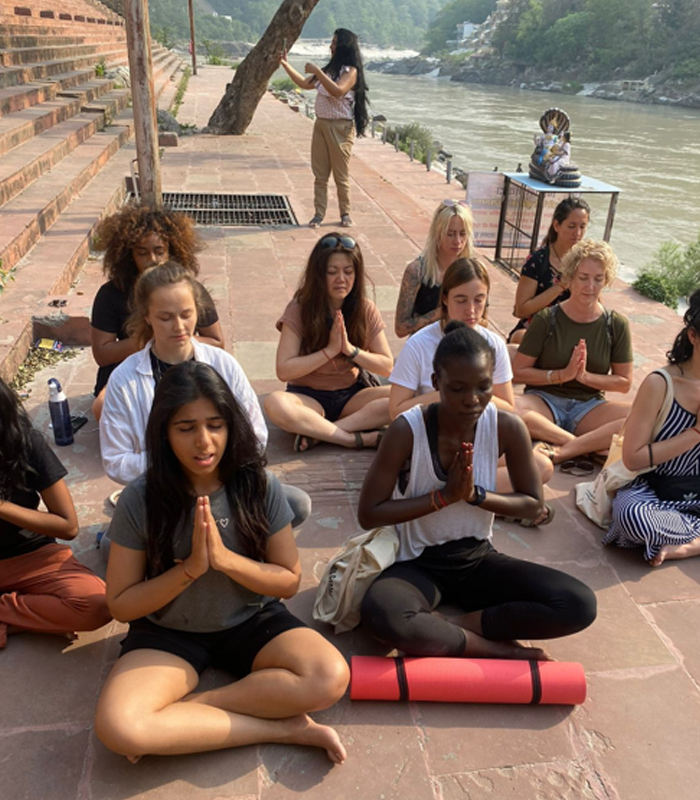Introduction:
In the modern world, where stress, pressure, and uncertainty are ubiquitous, the prevalence of depression and anxiety has become a significant concern affecting millions of individuals worldwide. While traditional treatments such as therapy and medication are vital, many people are seeking alternative approaches to healing that address the root causes of their mental health challenges. Retreats for depression and anxiety offer individuals a sanctuary away from the demands of daily life, providing a space for reflection, healing, and renewal. In this article, we will explore how retreats serve as sanctuaries for depression and anxiety relief, offering participants solace, support, and the tools they need to navigate their journey toward mental well-being.
Table of Contents
ToggleUnderstanding Retreats for Depression and Anxiety:
Retreats for depression and anxiety are immersive experiences that offer individuals the opportunity to step away from the stresses of daily life and focus on their mental, emotional, and spiritual well-being in a supportive and nurturing environment. These retreats are typically held in serene and natural settings, such as mountains, forests, or secluded retreat centers, away from the distractions of urban life. They often incorporate a combination of mindfulness practices, meditation, yoga, therapeutic workshops, and holistic healing modalities to promote relaxation, self-awareness, and emotional healing.
Benefits of Retreats for Depression and Anxiety Relief:
The benefits of retreats for depression and anxiety relief are manifold and can have a profound and lasting impact on participants’ mental health and well-being. Some of the key benefits include:
- Immersive Healing Environment: Retreats provide a safe and supportive environment where individuals can escape the pressures of daily life and immerse themselves in healing activities and practices. The tranquil surroundings offer a respite from the hustle and bustle of urban life, allowing participants to relax, recharge, and rejuvenate their minds, bodies, and spirits.
- Mindfulness and Meditation: Many retreats incorporate mindfulness and meditation practices as central components of their programs. Mindfulness-based interventions have been shown to be effective in reducing symptoms of depression and anxiety by helping individuals cultivate present-moment awareness, acceptance, and compassion for themselves and others. Through guided meditation sessions and mindfulness exercises, participants learn to quiet the mind, cultivate inner peace, and develop coping skills for managing stress and negative emotions.
- Yoga and Movement Therapy: Physical activity and movement therapy, such as yoga, qigong, or dance, are integral parts of many retreats for depression and anxiety relief. Yoga, in particular, has been shown to have numerous mental health benefits, including reducing symptoms of depression and anxiety, improving mood, and enhancing overall well-being. By incorporating gentle movement, breathwork, and mindfulness into their practice, participants can release tension, increase body awareness, and reconnect with their inner strength and resilience.
- Nature Immersion and Ecotherapy: Spending time in nature has been shown to have a positive impact on mental health and well-being, particularly for individuals struggling with depression and anxiety. Retreats often include ecotherapy activities such as nature walks, forest bathing, gardening, or outdoor mindfulness practices. Connecting with the natural world can help individuals feel grounded, revitalized, and connected to something greater than themselves, fostering a sense of awe, wonder, and gratitude.
- Therapeutic Workshops and Group Support: Retreats typically offer a range of therapeutic workshops, group discussions, and support sessions facilitated by trained professionals, such as psychologists, counselors, or life coaches. These workshops may cover topics such as self-care, stress management, emotional regulation, communication skills, and resilience building. Group support and camaraderie can provide validation, encouragement, and inspiration for participants, creating a sense of community and belonging.
- Holistic Healing Modalities: In addition to traditional therapeutic approaches, many retreats incorporate holistic healing modalities such as massage therapy, acupuncture, energy healing, sound therapy, or art therapy. These modalities work on the physical, energetic, and emotional levels to promote relaxation, release tension, and stimulate the body’s natural healing mechanisms. By addressing the whole person—mind, body, and spirit—holistic healing modalities can complement and enhance the effectiveness of other therapeutic interventions.
Case Studies and Testimonials:
To illustrate the transformative power of retreats for depression and anxiety relief, let’s consider a few case studies and testimonials from individuals who have participated in these retreats:
Case Study 1: Sarah, a 35-year-old woman struggling with chronic stress, anxiety, and burnout from her demanding job, decided to attend a week-long mindfulness retreat in the mountains. Through daily meditation, yoga, and nature walks, Sarah learned to slow down, be present, and let go of perfectionism. She discovered new coping strategies for managing stress and anxiety and gained a deeper appreciation for the beauty of the natural world. After returning home, Sarah felt more centered, balanced, and resilient, and was better able to navigate the challenges of her daily life with grace and ease.
Testimonial 1: “Attending a retreat for depression and anxiety relief was one of the best decisions I’ve ever made for my mental health. The combination of mindfulness practices, yoga, and nature immersion provided me with the tools and support I needed to heal and thrive. I returned home feeling rejuvenated, empowered, and more connected to myself and others.” – David, 42
Testimonial 2: “I was skeptical about attending a retreat for depression and anxiety relief at first, but I’m so glad I took the leap. The retreat provided me with a safe and nurturing space to explore my emotions, release pent-up tension, and connect with others who understood what I was going through. It was a transformative experience that I’ll cherish forever.” – Emily, 28
Conclusion:
Retreats for depression and anxiety relief offer individuals a unique and transformative opportunity to heal, grow, and thrive in a supportive and nurturing environment. By incorporating mindfulness practices, meditation, yoga, therapeutic workshops, and holistic healing modalities, these retreats address the mind, body, and spirit holistically, promoting relaxation, self-awareness, and emotional healing. Whether you’re struggling with chronic stress, anxiety, or depression, or simply seeking a respite from the pressures of daily life, a retreat for depression and anxiety relief can provide you with the tools, support, and inspiration you need to embark on a journey of self-discovery, healing, and transformation.



